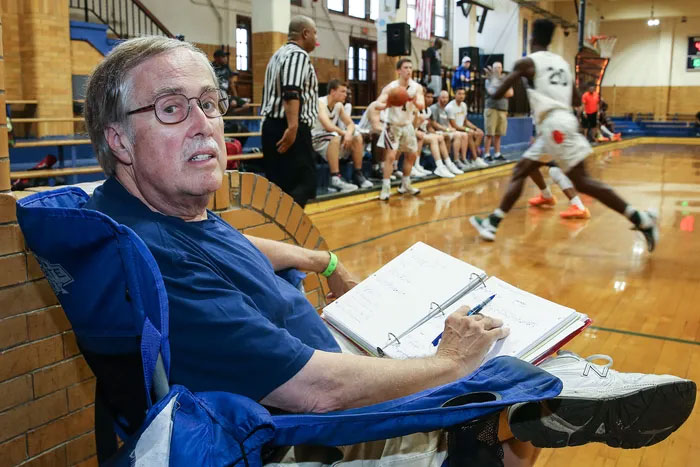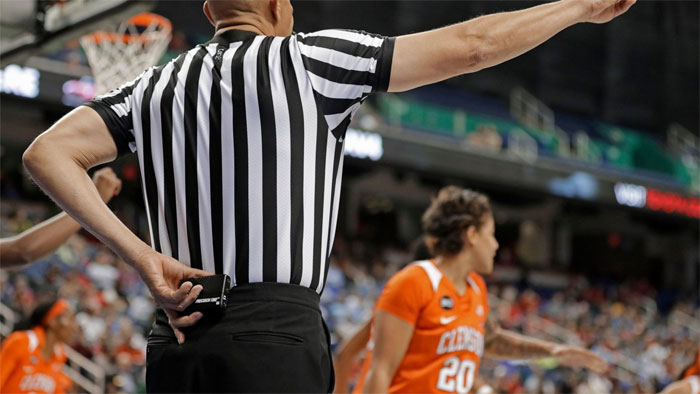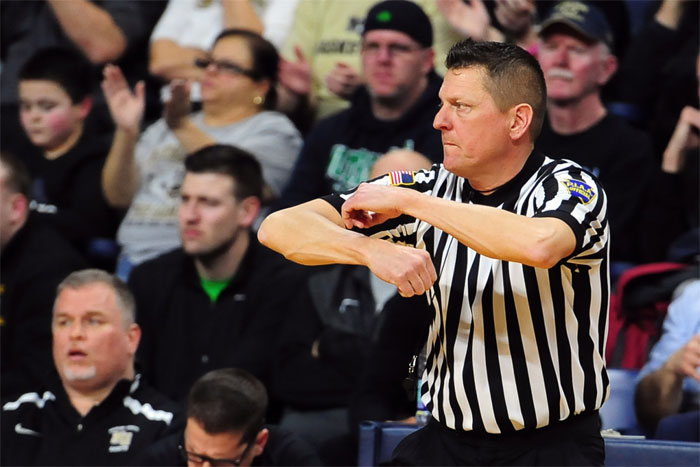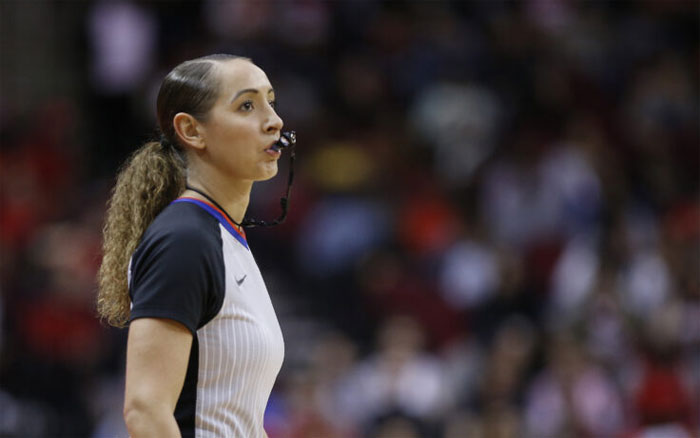Do you want to become an NBA referee but don't know where to start? Or you had already gathered some details but got stuck in the process? Here is a complete guide that answers all your questions, from the selection process to the physical requirements of the job.
Technical Requirements
Every NBA referee goes through a rigorous selection process involving scouting, training & evaluation, and orientation before getting hired for the big league. Here is a brief lowdown of the process:
Officiate Live Events
The first requirement to become an NBA referee is the experience of officiating in live events.
To qualify themselves, candidates need to become referees in the following organizations/tournaments: international games, national tryouts, NCAA camps, pro-am league, junior college games, high school games.
Be Aware of Scouts
When you are refereeing for matches in the lower tier, always keep in mind that scouts may be watching you. The NBA has a scouting group that will send officials to monitor potential candidates.
The top 100 candidates chosen will be sent to evaluation rounds. Don't lower your guard at any event. Instead, keep giving your best, and your chances will increase.

Perform at the Camps
Training and evaluation will follow if you get selected by the scouts. After a brief training, you will be evaluated based on the following criteria: accurate decision making, communication skills, and whether you can maintain fair play. Your skill will be assessed at the grassroots, mid-level, and elite-level camps.
But in case you didn't get selected in the camps, don't worry; for a year, you will be on their monitoring lists.
The G-league
The G-league is the next stop for some of the best performers from the elite-level camps. G-leagues is the National Basketball Association's official minor league basketball organization.
All G-league referees will attend an orientation session and be part of the summer league training. These referees will also participate in pre-season games and playoffs.
Final Hiring
Based on your performance in the G-league, the organization will take a final call and hire you for the NBA.
Physical Requirements
It is no secret that an NBA referee should always be at the peak of their fitness levels. They have to run alongside some of the fastest sprinters in the world.
Sometimes, they need to move ahead of the players to catch their foul play. They, too, have dietary restrictions and strict sleep schedules. Here are some things to consider.
Physical Fitness
Being an NBA referee requires regular workouts and a strict physical fitness regime. While running, you must be able to run and talk simultaneously and also blow the whistle. Start practicing 30-minute runs every morning. Mix it up with walking, fast walking, jogging, and running.
Imagine an NBA game. The referee is constantly on the run. He sprints from the left to the right of the court, suddenly breaks his run, walks back to the center, and gets ready for the next set.
Your body needs to prepare for constant running at the same intensity from the first whistle to the final. Your trainer should decide the workout routines considering these requirements.

A slim, athletic body is a must for NBA referees. Regular strength workouts involving weight training and elastic bands should be part of the regime. In addition, you should regularly do squats, core strengthening drills and significantly strengthen your hamstring with specific exercises.
Diet Restrictions
There are no restrictions on what you need to eat. But keep in mind that you should consume a balanced diet which contains proteins, carbohydrates, vegetables and fruits in equal measure. Sugar intake is allowed, but measure the calorie count during consumption.
Sleep and Travel
Eight hours of sleep every day is a must if you aim to officiate in the NBA. Also, game manuals suggest a nap of 40 minutes to one hour before a big game in the evening.
However, it is essential not to exceed the prescribed limits as too much sleep will make you lethargic during a match.
As the matches may happen across many cities, constant traveling will become part of a referee's life.
While traveling, referees should intake more water than usual. Doing light exercises and walking inside the flight may help reduce stress in the legs. Also, a brief workout after landing might help mitigate the effects of jet lag.
Eyesight
A perfect 20/20 vision is a desired trait for all NBA referees. As most fouls happen in a split second, referees can't afford to make errors as their vision is blurry. While wearing contacts may help those with eye defects, a perfect vision will give you an advantage over others.
Anger Management
The most important part of the job is remaining calm and calling a foul even while surrounded by many six-foot NBA superstars who disagree with your decisions. Mental fitness is as vital as your physical fitness. Develop an attitude that will help you not wilt under pressure and keep officiating the game as per the rules.
As most games go down the wire, even the most minor errors will make or break a game. As the margins are wafer-thin, it is safer to make unbiased decisions, to make your case later if questioned.

Photo Credit: Jack Kapenstein
Also, you mustn't lose your temper. Given the fan following, sometimes you may have to make hard decisions, leading to heartbreaks for fans and players.
Remember that every tough decision you make will help you rise in stature. And the calmer you appear, the more confident you are about your choices. Deal with altercations after the game ends, don't quarrel in the middle of a game.
General Requirements
Educational Levels
Usually, a high school diploma would do. However, being a graduate will not hurt your chances. Most of the NBA referees have completed college degrees. It is essential because you have a fallback option if you cannot make it to the big leagues.
If you aim for the big leagues, a certification will help you. For instance, the National Coach Certification Program offers professional basketball coaching certifications in two levels. Finishing the first level will make you an accredited interscholastic coach. The second level will make you a certified interscholastic coach.
Gender Roles
The NBA does not discriminate based on gender. If you pass the criteria set for the role, it does not alter its decision to hire if you are a female. The National Basketball Referees Association currently lists at least five female referees.
Here is an interview of some leading women referees in the NBA to understand how they got in.

Be Clear About the Rules
Thorough knowledge of the rules and referee signals is a must if you wish to become an NBA referee.
So keep practicing the signs and always be up-to-date about the new rule changes in the game. The NBA has released a video rulebook for those who prefer to watch and learn. Here is a link to the rulebook.
Earning Potential
NBA referees earn between $150,000 and $550,000 each year.
In your first season as an NBA referee, you may earn anywhere between $150,000 to $250,000. But as you gather experience, the amount will multiply.
Seasoned referees such as James Capers, Sean Corbin, and Tony Brothers, who have officiated for more than 25 seasons, earn around $550,000 each year.
Type of Shoe
You will be running every minute of a match on all game days throughout the year. Thus choosing the correct shoe is of utmost importance as even the smallest of rashes may put you out of action for days.
Try to use different brands for more extended periods and test the best fit for you. NBA has strict color codes, so always try to wear black-colored shoes. You can try some of them from this list:
A Survey of Existing Referees
A look at the path traveled by some of the active NBA referees would help understand the expectations better.
John Butler
Let's start with Mr. John Butler, who has just finished his first season as an NBA referee. Born on August 20, 1986, in Biloxi, Mississippi, he completed his school education at San Diego High School and college education at Vanguard University.
Before entering NBA, he was a referee for five seasons in the NBA G League and two seasons in the WNBA. During the G league days, he officiated playoffs from 2015-19 and the Finals in 2018 and 2019.
Before the G leagues, he had the experience of refereeing college games in the Big West, West Coast, and Pac West conferences for four years. Before that, he officiated high school games for three years in California.
Lauren Holtkamp-Sterling
Next up is Lauren Holtkamp-Sterling officiating her 6th season as an NBA referee. Born on November 24, 1980, in Jefferson City, Missouri, she finished her schooling in Jefferson City High School and completed higher education in three universities.
Before joining the NBA, she officiated in the NBA G League for six seasons and four seasons in the WNBA. She was a referee in many college conferences such as ACC, Big Ten, Big 12, Big East, and Colonial Athletic.
In addition, she has been a part of FIBA competitions, such as the 2010 World University Games and the 2012 and 2013 FIBA Americas Championships.
Even Scott
Finally, let's look at another newbie, Even Scott. On May 22, 1992, he was born in Taejon, South Korea. He completed his schooling at Thomas A. Edison High School in Alexandria, Virginia, and college at Radford University.
Scott has just completed his debut season at the NBA. He was a referee for three NBA G League seasons, including the 2019 finals. His resume includes five years of college-level experience in the Big South, Old Dominion Athletic, and Capital Athletic conferences. He has two years of high-school experience too.
The NBA referees in the examples cited hail from a variety of backgrounds. However, one common thread is that they have extensive experience officiating school and college-level matches before going to the G-leagues and the NBA.
So, be patient. Remember that it takes years of work at the lower rungs before you can enter the big leagues.
Conclusion: On Becoming an NBA Referee
The way forward is clear. First, gain a school diploma and follow it up with a college education if you can afford it.
Second, apply to youth-level basketball games in high schools and colleges and gain at least six seasons worth of experience.
Third, make sure you are serious about the games you officiate, as scouts will be arriving unannounced.
Fourth, keep yourself physically and mentally fit and always be up-to-date about the rules of the game.
Finally, develop connections with existing NBA referees so that you can walk their paths if need be.
